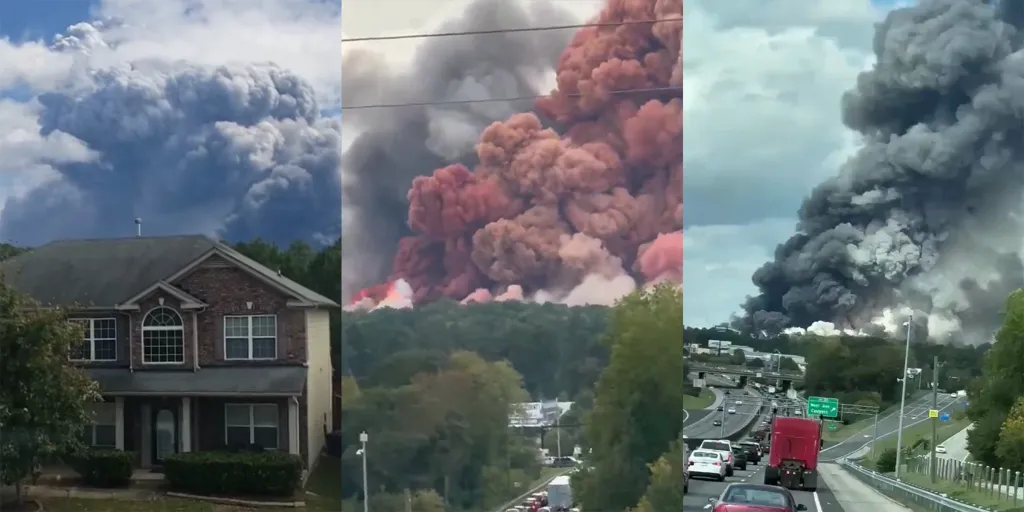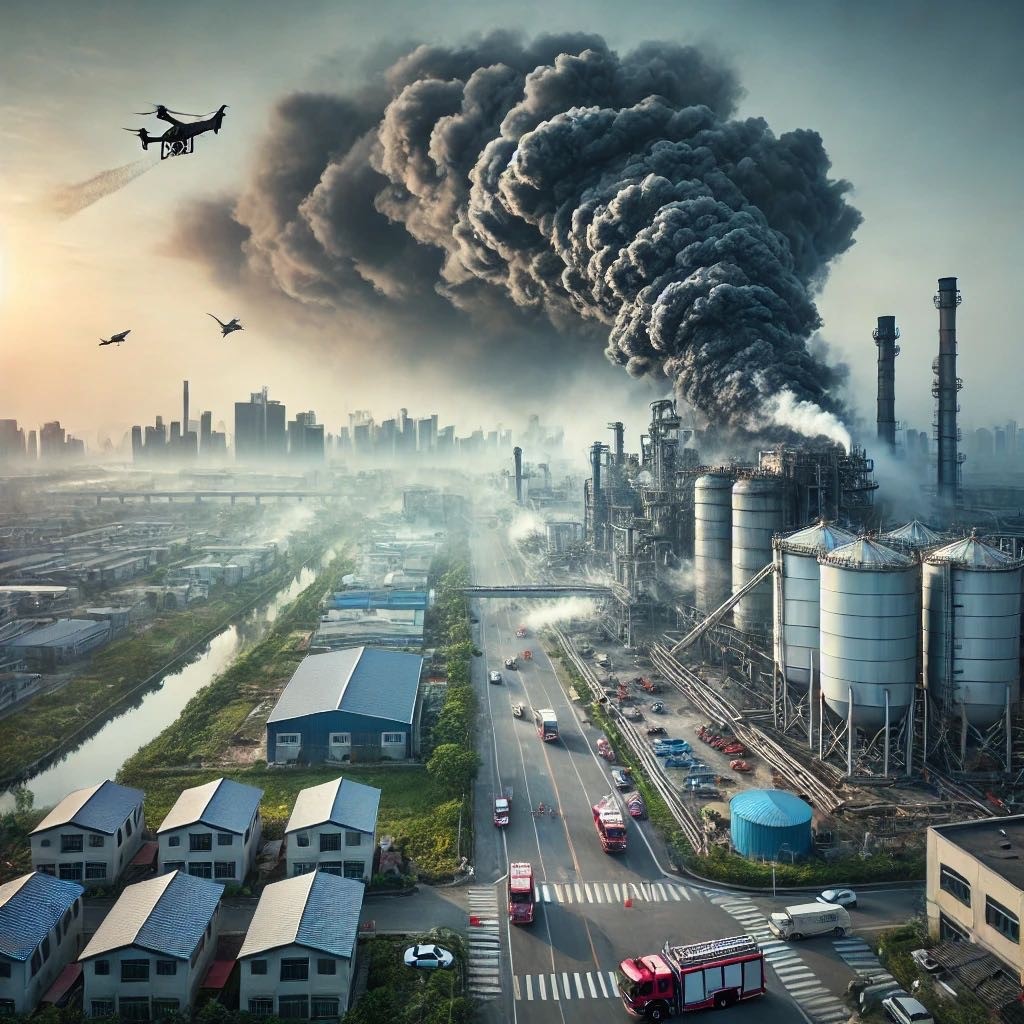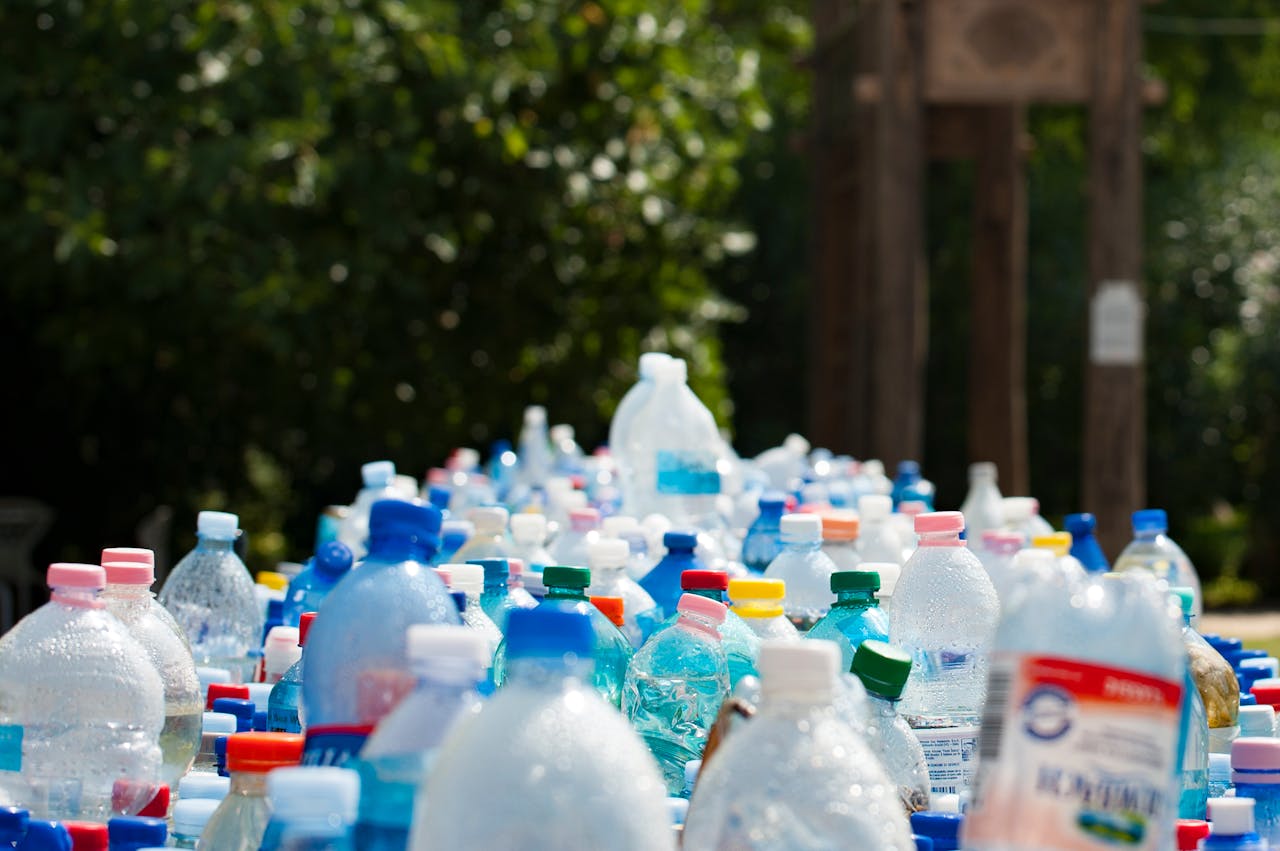A major chemical fire broke out at a BioLab facility in Conyers, Georgia on September 29, 2024, releasing toxic chemicals into the air and raising serious concerns about air quality. The incident caused hazardous smoke, primarily chlorine gas, to blanket parts of the region, forcing authorities to issue evacuation orders for over 17,000 residents. Immediate efforts were focused on containing the blaze and monitoring air quality, while thousands of people were advised to shelter indoors to avoid inhaling the dangerous fumes.
This alarming event brings attention to the broader issue of chemical air pollution and the importance of emergency response strategies to mitigate such crises. When dealing with chemical air pollution, here are essential steps to minimize its harmful impact:
Emergency Mitigation Solutions for Chemical Air Pollution
- Evacuation and Shelter Orders: In the wake of chemical fires, authorities must quickly issue evacuation and shelter-in-place orders to safeguard public health. Closing windows, sealing gaps, and staying indoors reduces exposure to airborne contaminants.
- Air Quality Monitoring: Real-time monitoring of pollutants, such as chlorine gas or volatile organic compounds (VOCs), is vital. This data informs decisions about the scope of evacuations and ongoing risks.
- Protective Equipment: Emergency responders must be equipped with proper personal protective equipment (PPE), including masks and hazmat suits, to avoid direct exposure to harmful chemicals.
- Chemical Neutralization: Decontamination methods, such as deploying chemical neutralizers or using ventilation systems, help remove hazardous substances from indoor and outdoor air.
- Long-Term Sustainable Solutions: To prevent such disasters, we must invest in renewable energy sources, stricter emissions regulations, and green urban planning, which can reduce industrial air pollution overall. Electric vehicles (EVs), carbon capture technologies, and green spaces are also key for long-term pollution control.

The recent BioLab fire in Conyers, Georgia, serves as a grim reminder of the urgent need for proactive measures to address air pollution, both in emergency situations and through sustainable long-term solutions. As industrial accidents continue to threaten communities, it’s clear that proactive measures, both for emergency response and long-term solutions, are essential to prevent health risks. The time to act is now to ensure cleaner air and safer futures.
We all play a role in protecting our environment and public health. From supporting policies that promote clean energy and stricter industrial regulations to adopting sustainable practices in our daily lives, every action counts. Join the movement for cleaner air by advocating for stronger environmental protections, and consider making sustainable changes, such as reducing energy consumption.



